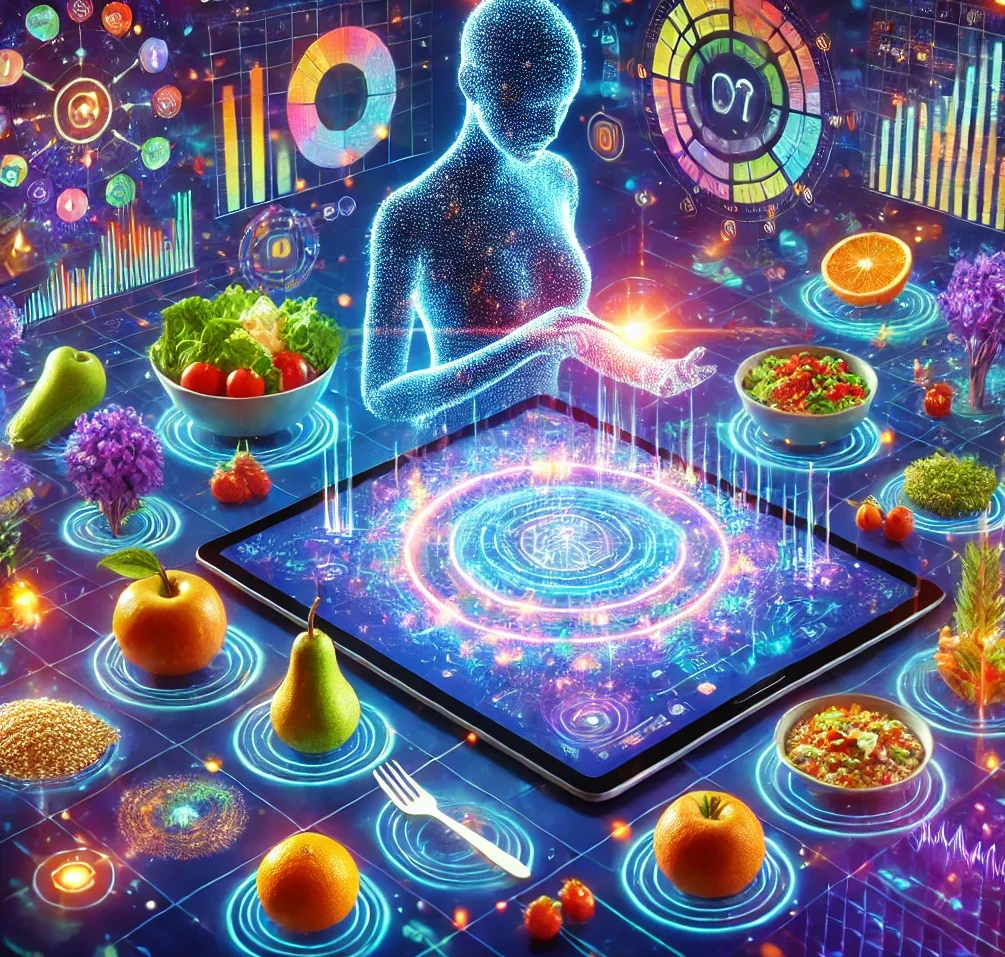Modern life is moving at a faster clip, so health conscious people strive to find solutions for enhancing their welfare. The latest trend is the emergence of AI-Driven Personalized Nutrition Plans, using the most sophisticated method of suggesting dietary recommendations that are customized to a person’s needs. These plans tap into individual data using artificial intelligence and make very personal and specific suggestions about eating healthy. Healthy eating has just become easier and more efficient than ever before. In this blog post, let’s understand how AI-driven nutrition works, what its benefits are, and why it has become the game-changer for health enthusiasts.
What Are AI-Driven Personalized Nutrition Plans?
AI-driven personalized nutrition plans: Personal diet recommendations through artificial intelligence, from their input from large databases, therefore personalizing the meal plans specific to a particular individual’s health profile. These are:-
1.Genes
2.Metabolic rate
3.Sensitivities and intolerances
4.Nutritional deficits
5.Lifestyle
6.Body goals
AI tools use data from wearable devices, apps, or even genetic tests, analyzing how your body processes those particular nutrients, what dietary adjustments would bring you the best health results. This precision helps people adopt diets that work best for their specific needs, thus making it more efficient than generic advice given by a nutritionist.
How AI Can Change Personalized Nutrition
1. Data Collection and Analysis
Such AI-driven platforms rely on extensive data collection. The relevant information obtained here will be health-related data, and these will usually revolve around the user’s age, gender, weight, activity levels, or even their genetic predispositions. There can also be AI tools that collect data from fitness trackers or even smartwatches that allow real-time insights into daily calorie expenditure or even sleep patterns and other health metrics.
Once the data is collected, AI algorithms analyze it to create a tailored nutrition plan. These algorithms evaluate the nutrient requirement and do predict the potential health risk for an individual. Even some algorithms suggest portion sizes and even further the ideal time one should eat in relation to the best times for the absorption of nutrients.
2. Precision-based meal plans
Unlike a one-size-fits-all diet, AI-driven recommendations are hyper-personalized. Hence, in the event of slow metabolism, the AI recommendation may suggest foods that accelerate the metabolism and optimize digestion. In cases where one is looking to lose weight, a low-calorie, nutrient-dense diet with consideration about whether or not one is active may be prescribed.
AI also considers the food preferences and allergies. For example, if an individual is lactose intolerant or vegan, a modified plan is employed to ensure that all the essential nutrients are derived from alternative sources.
3. Continuous Monitoring and Adaptation
Another impressive feature of AI-based nutrition programs is how it updates over time. Over time, it is because users will put in more data or because the AI would take new information from fitness trackers, and thus the dietary recommendations will keep on updating. This means the regimen evolves alongside the health journey of the person, leading to success over the long haul.
Another application of AI is to inform the user when they fail on specific nutrients and provide advice in real-time. It then recognizes low intake of iron for a period, so it says a user needs an iron-rich snack.
4. Predictive Health Analytics
Beyond this, AI-driven nutrition anticipates the issues that may crop up with the user’s data and subsequently prescribes preventive measures. For example, if AI starts to identify some patterns and concludes that a user is at risk of having diabetes, it can suggest a diet that keeps blood sugar in check.
This proactive approach not only benefits health outcomes but also cuts down on costs related to needless medical bills because of chronic diseases.
Benefits of AI-Driven Personalized Nutrition Plans
1. Specificity and Personalization
There can’t be anything like the specificity provided by AI. Human nutritionists always have a scope for error and plans may even be based on general assumptions. AI, however, bases decisions strictly on data and this turns out to be very specific for the individual. Thus, users will follow diets scientifically optimized for their health.
2. Sustainability
Created by AI diets are easy to follow. These diets being based on individual likes and dislikes as well as certain preferences, users tend to stick with the diet in the long term. AI is responsive to changed goals or preferences keeping the user motivated and interested in the food that is prepared.
3. Better health outcomes
Whether it’s for weight management, improving fitness, or issues with health conditions like diabetes, AI-powered plans provide more focused advice and hence produce much better outcomes. With constant data analysis and recommendation adjustment, AI works for its users to remain on course and reach their health goals much faster.
4. Time Efficiency
Compared to hours of research into diets or visits to a nutritionist, AI does the real work for you. With these platforms, meal plans are really produced within a short timeframe, so it does not take as long to get started on your health journey. There are accompanying grocery lists and meal prep tips that make this process quicker while planning and executing.
5. Cost-Effective
Compared to some nutrition plans or consultancies, which could be pretty pricey, AI-based tools are much more affordable. Most platforms offer subscription-based services that tend to be much cheaper than personal dietitian consultations. Moreover, by keeping away from chronic diseases, AI-based plans may save users a lot of money on health care in the long term.
Challenges
Despite all the amazing opportunities the AI-Driven Personalized Nutrition Plans bring, there are a few challenges and issues to consider:
Data Privacy: Many of these AI health assistants require access to sensitive health data, thereby ensuring such tools relate correctly to privacy issues is necessary.
Human Element: AI tends to analyze data efficiently, but they cannot possibly adopt the empathetic nutritionist approach required in guiding their clients. Thus, AI may not completely replace human touch for emotional support or counseling.
Bias in Algorithms: It will lead to biased algorithms, if the data used for training has been biased. For instance, suppose data used to train an AI does not include much diversity. It might give bad recommendations for those demographics.
Conclusion
With AI revolutionizing the world, health and nutrition will never be the same again. AI-Driven Personalized Nutrition Plans create data-based, customized recommendations that improve health outcomes and make healthy eating easier than ever before. Be it weight loss, fitness, chronic diseases, or more, AI gives you a very intelligent and sustainable way towards your dietary needs.
This technology is here to unlock your personal pathway to better health. No guessing. Goodbye, generic diets; hello, future high-tech nutrition.
Imagine the possibilities: personalized wellness at an AI level.











